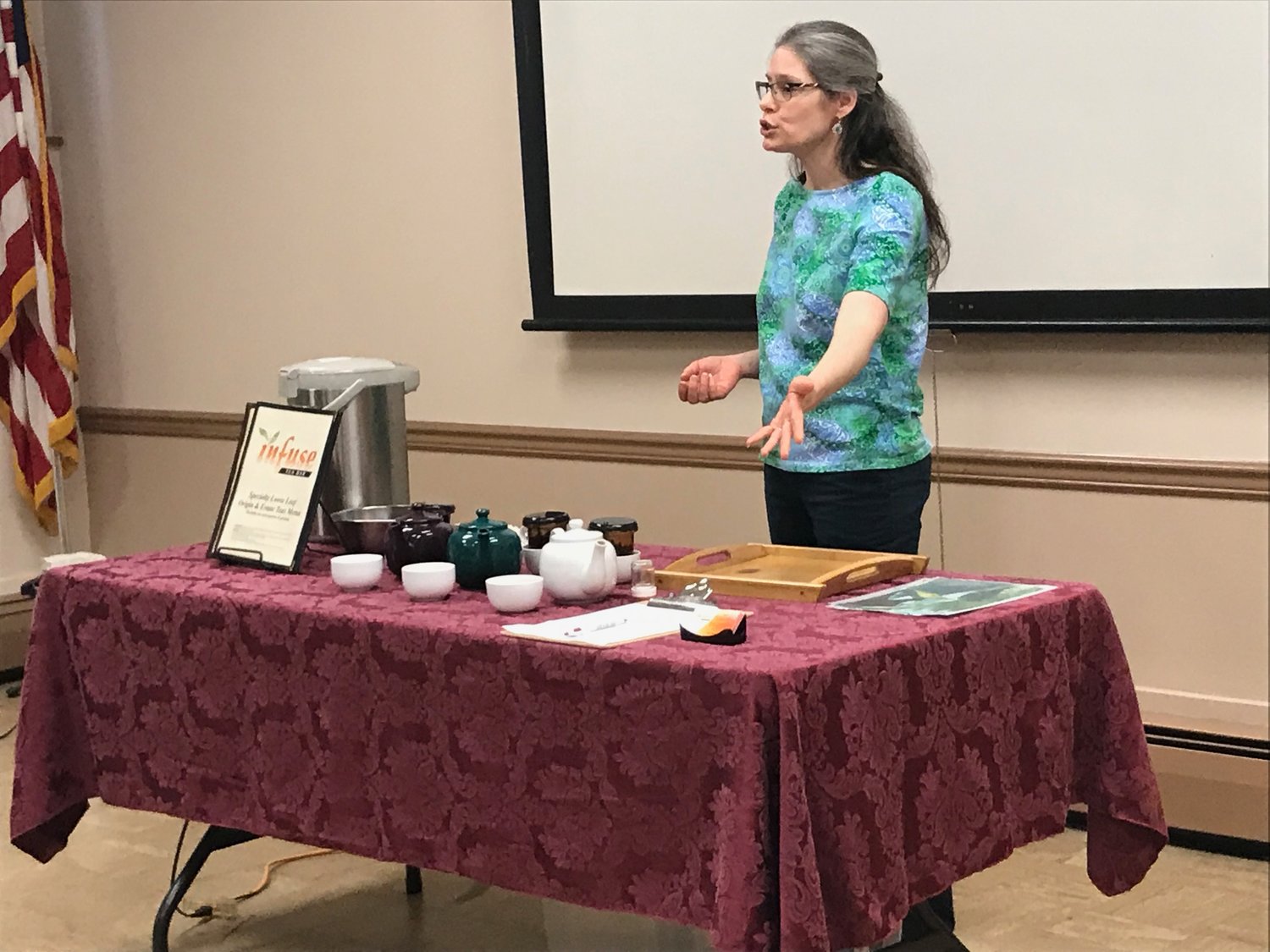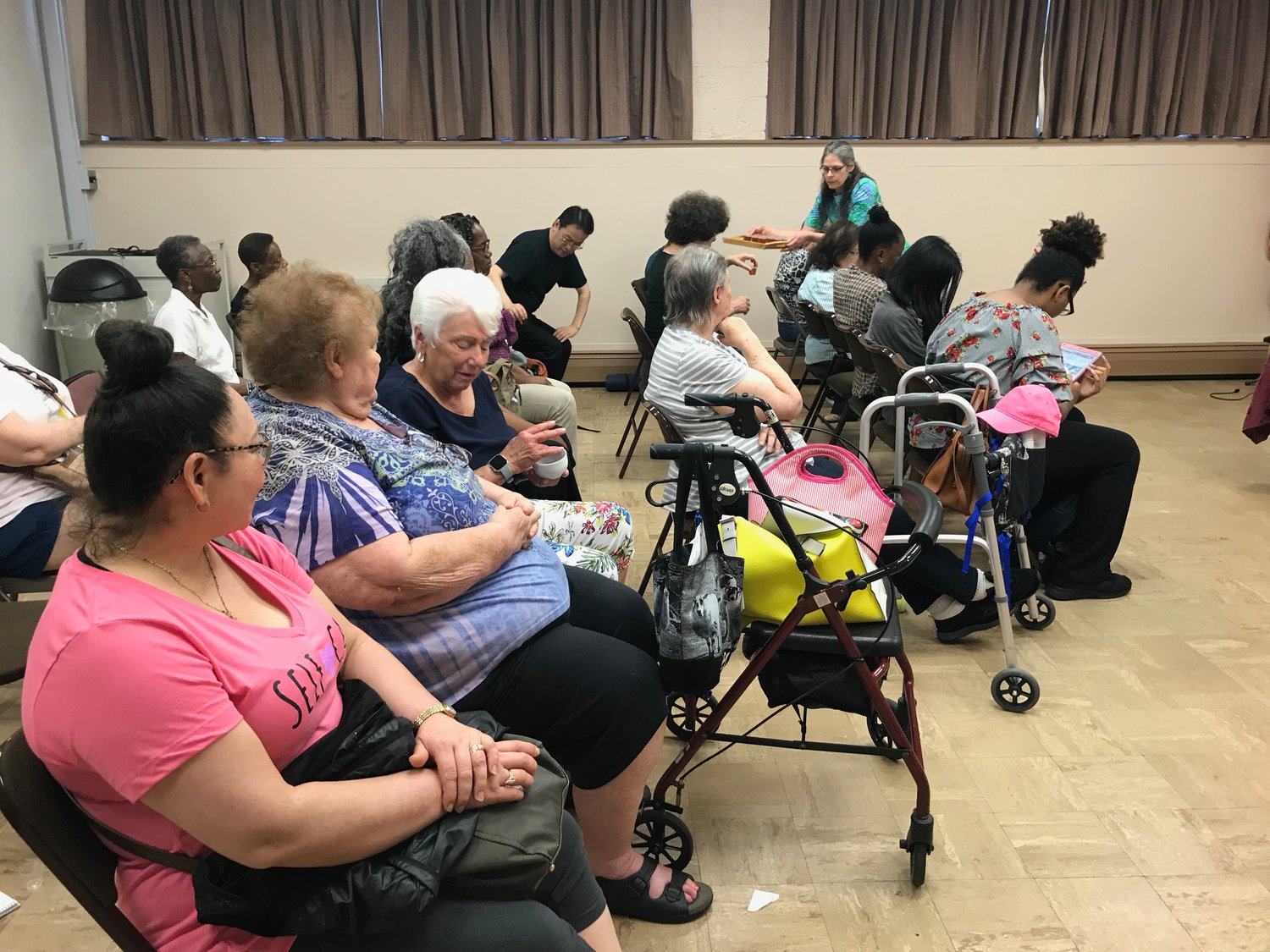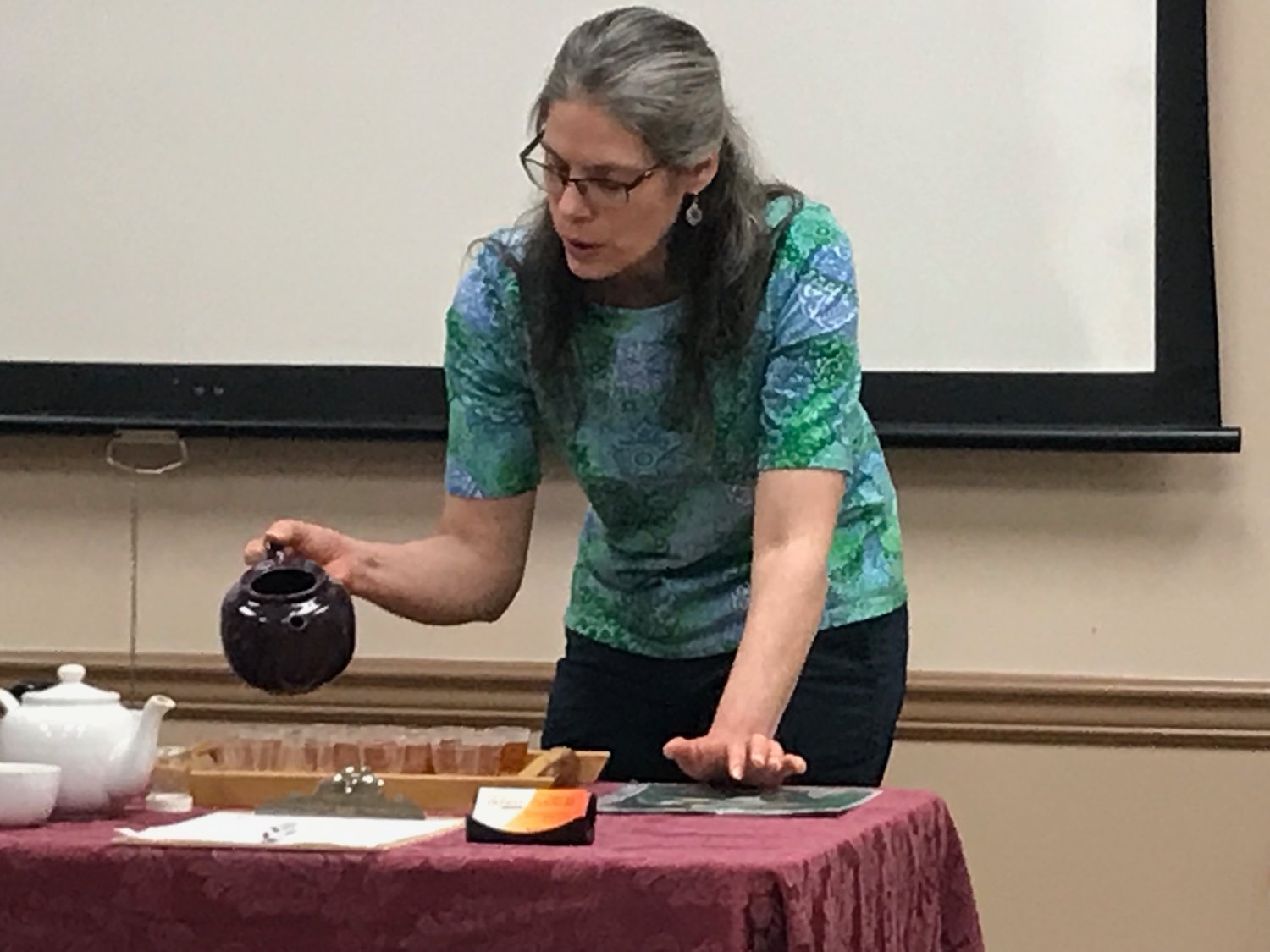Tasting Taiwan through teas
She passed around white cups of mysterious tea. Certified tea aommelier and owner of Infuse Tea Bar Kristine Henderson, of West Sayville, held a tea workshop at the Freeport Memorial Library on June 25.
The tea tasting featured teas from Taiwan and provided attendees with a new perspective on the beverage, as well as tips on how to taste them. The event featured three teas: baozhong, which is classified as a green tea; oolong, which was sweeter compared to the baozhong; and black tea, which Henderson described as “rich and flavorful.”
After the prepared teas were passed around, Henderson handed out leaf samples of unidentified teas. She suggested that tea drinkers learn more about the teas they were sipping. She recommended getting to know the aura of the tea by smelling it. Attendees tasted each of the three teas offered, and the workshop transformed into a guessing game of “What tea is this?” Throughout the room, people were “sipping, swishing and swallowing.”
“There really is no difference [between coffee and tea],” Henderson explained. “It’s more of what you add to your tea which makes the difference — if you put sugar, milk or honey, that can change how healthy your tea is.”
According to Henderson, there are three rules of tea tasting. The first is slurping, which works by breathing more oxygen into the mouth, she explained. This helps release more essential oils from the teas. The second is swishing, which ensures the tea hits not just the tongue and cheeks, but every taste bud in the mouth. The final rule of tea tasting is swallowing, which helps one to understand if the tea is “lingering. Is it gone? Are there any additional tastes?”
Henderson also touched on the tea-making process. She said the water temperature is extremely important contingent upon the type of tea made. “For green teas, the water should boil for just one to two minutes,” Henderson explained. “If you leave it on for too long, it could end up being very bland.”
Tea drinking has its benefits, she continued. “There are some amino acids in tea, one of which is called theanine. Theanine is an amino acid that promotes feelings of calm and relaxation in your body, which kind of moderates the caffeine in tea.”
On the topic of coffee versus tea, Henderson said that coffee isn’t “unhealthy,” but it’s the way people drink the coffee that is concerning. “It’s a lot of additives that make [coffee] unhealthy, like the milk and sugar.” And although coffee has more caffeine than tea, Henderson pointed out that caffeine is not the issue. “Caffeine itself isn’t necessarily a bad thing, it’s the thing called moderation, which we Americans don’t really know much about.”
Natalie Deshommes is an intern at the Herald from Pennsylvania State University.

 47.0°,
Overcast
47.0°,
Overcast 









